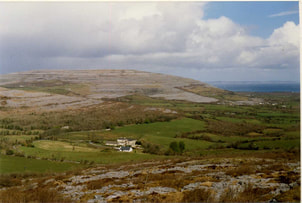 I didn’t expect them, thousands of ochre blooms spread across the hills of the village. Neither did I imagine the houses, eerily quiet streets, and gravestones flooding the main square. Leaving our rented car in the road, we trudge through weeds and turf, struggling through the bulging cemetery. A narrow creek flows loud as drums above the barren brass of the sky, the reedy grass, an echoing harmony of birds. We find a bar at Scott’s Grocery behind a wall of shelves and cooler stocked sparingly with rough brown bread, fresh cheese,and milk. A hallway leads to a dim room where men lean over pints of Guinness dressed in overalls, wool hats tilted down, boots wet with earth and dew. We drink whiskey and beer, observing the unlit fireplace and peeling linoleum floor. My father weaves our history: a man struck by a train; a woman taken by strangers across an ocean; a child baptized in Ireland; a family rooted in Scranton, Pennsylvania. Outside, the sun inches below the hills. A boy kicks a ball against the grocery’s side wall. We speak to him as we leave, warmed somehow by the colorless, staid company of the bar. In the morning we’ll wake early to hot plates of bacon and eggs, black pudding, and fried potatoes in the white tablecloth dining room of our bed and breakfast. We’ll drink coffee and tea, smear black currant on toast, and peruse the news of County Mayo, waiting for a new day to begin. 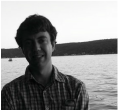 Kevin O'Connor received his B.A. from Johns Hopkins and his M.F.A. from Old Dominion University. He has published writing in Slant, Anderbo, The Fourth River, Bayou, Bluestem, Literary Juice, The Tulane Review, and The Pinch. He lives in Buffalo.
2 Comments
 Victor Goines, “Joie de Vivre” Dear clarinet, Please tell that story again, the one whose grief fills our hearts with something like joy, green neon letters glowing in the glasses on each table. The bartender frowns at two young women to listen, listen closely: their stories can wait till yours has ended. Wind chill warning remains in effect….National Weather Service Dear winter, We understand now. We have stopped whatever we were doing: our schools have closed, trains ground to a stop, the river frozen over. What more can we learn from a cold that cramps our fingers, settles into the bones of our houses, breaks up the pavement beneath our wheels? John Donne, “To Mr. R. W.” Dear John, No, not that kind of letter—you are long gone so it’s not about letting you go. I’m just curious about this magic that brought you back to life simply by reading a few words from a friend. Every day I check the mail for a letter like that but so far only catalogs and bills. “Bald eagles’ numbers soaring in Illinois,” Chicago Tribune Dear eagles, I don’t blame you for not following the script. You don’t owe us anything, certainly not a spectacle since grace is our concern, not yours-- yours is the ice that seals off open water where you can fish. I hear it’s better in Kansas: a friend writes of seeing eagles gather near a lake that’s still unfrozen. Go visit her; she’ll send me a postcard.  Susanna Lang’s newest collection of poems, Tracing the Lines, was published in 2013 by the Brick Road Poetry Press. Her first collection, Even Now, was published in 2008 by The Backwaters Press, followed by a chapbook, Two by Two (Finishing Line Press, 2011). Her poems have appeared in journals including Little Star, New Letters, The Sow’s Ear Poetry Review, The Green Mountains Review, The Baltimore Review, Kalliope, and Jubilat. She lives in Chicago, where she teaches in the Chicago Public Schools. 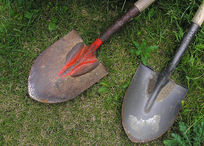 Rich stood by the tree, his hand gripped to the high end of the trunk. His gray tennis shoe balanced on the shoulder of the shovel’s blade, its face stabbed between roots. His father Stanley labored beside him, bent forward at a right angle, his shovel held in both hands childishly close to the business end. He sliced the metal through the dirt, the repetition like the sound of the earth breathing. “I asked you out here to help me.” Stanley complained. “You asked me nothing.” Rich said, letting his shoe leave the shovel and plant onto the dirt. “I came out here to make sure you don't wander off into the street.” Stanley stopped his digging. Still bent over, he looked up to his son caught in an absent glare. “I’m not the one always lost in space.” Stanley started. “I’ve known this home since I was a child. Hell, it’s why I’m digging.” “You’re digging because you’ve grown senile and you need something to fill the gap.” “What gap?” “Never mind.” Stanley went back to his work. The shovel only picked up enough dirt to fill a sandwich bag, but piled on the patchy grass near the sidewalk, he had himself a mound calf-high. “My father bought this place when I was three years old.” Stanley began. “I know. I know. Bought it before the town had a single stoplight. Bought it before Main was Main and before the factories came and went. Everyone made fun, until LIFE magazine named it a top 25 town to raise a family. Way back in ‘63” “Right around the time you were coming up.” Stanley added. “We lived in Fresno then, pop.” The shovel stopped and Stanley shrugged. “Guess so.” “You know pop, you still live here, and the neighbors are going to wonder what you’re doing.” “That’s why I thought you’d help. It’d go a lot faster if there were two shovels moving.” He stopped his work and clanked his shovel against his son’s. Rich lifted the blade from its shallow earthen pocket and stabbed it between roots on the other side of the tree. “When I hid them,” Stanley started. “I thought of it as a game, but as time passed, it became an investment. You’ll be shocked, boy-o. Some as big as quail eggs.” Rich sighed. “There are no diamonds, dad. It’s a false memory, or a dream masked as memory. Regardless, there’s nothing to dig up, just the tree and its roots.” Stanley stopped his shovel and stood almost strait. “You don’t know. You think you do, but you don't.” Rich stood silent. Stanley eyed him aggressively. “I buried them.” He shouted, pinning his thumb his chest. “I buried them, and they’re here.” He lifted the shovel and stuck the blade downward with all his might and struck a root. The reverberation sprung his rickety hand open and widened his eyes. The shovel fell from his hand, its wood shaft bounced to rest on the sidewalk. Stanley’s head trembled staring through his son at his pain. Tears filled his eyes. Rich bent down to pick up the shovel. “Leave it.” Stanley snapped, freezing Rich mid crouch. “Don't help me, if you’re not going to help me.” Stanley clenched his hand into a fist before opening it slowly, repeating the act until the movement settled the pain. A child works fiendishly on all fours. He has stolen a gardening shovel from the garage. If his father catches him, he’ll get the belt. His seven-year-old hand grips half of the tree trunk he works under. His father told him that he and the tree will grow together, but the tree seems so big already, the boy can’t imagine how he’ll catch up. He turns the garden shovel around in his hand, lifts it up over his head and begins stabbing the earth again and again, forming soft clots of dirt before tossing the little shovel aside and using his hands to form a round cradle for the diamonds.  An MFA student at CSUSB, Ruben Rodriguez writes, paints, and wastes his time at the foot of the San Bernardino Mountains. He is the fiction editor of The Great American Lit Mag. Many of his stories have been deemed fit for consumption by the likes of Reunion: The Dallas Review, TINGE, The Nassau Review, ZAUM, theNewerYork, and others. His chapbook We Do What We Want (Orange Monkey Publishing, 2015) is due out later this year. You can find him at www.rubenstuff.com. --for Chad A light makes slats across my thighs once we are alone. The night is thickening--swollen stone heavy and immaculate. If nothing else I clench electricity now because the star-filled cloak is too dim for much use anymore. We evade the ruptured cuneiform thinking a few hours would be enough. I unfashion the order of sentences into movement of a tongue. I have been ready to start over though you have only seen the latticework of poets. What you say might be put on a page at any time is how I warn you I write again. See. Consider the volumes of stilled Incan rituals since my hands find the roughened edges of your jaw. Anna Ivey is currently working on a PhD in poetry at Georgia State University in Atlanta, Georgia. She was nominated for a Pushcart Prize in 2014. Her most recent publications have been featured in So to Speak, The Unrorean, Antithesis, Stone Highway Review, and West Trade literary magazines. Further, she was offered a fellowship by the Summer Literary Seminars to attend a writing program in Lithuania in 2008 and 2013. She teaches high school English and lives with her husband Chad and her daughter Aralyn. Anna and Chad are expecting a child in August of 2015.
“No, sir.” “Him?” “My father,” I say. “A few. Earlier. Not in the car. We were just...” “I got an award tonight, a medal,” Dad calls from the backseat, Pendleton blanket draped over his legs. “Hey. Why can’t he hear me?” “Just make sure he’s buckled,” the trooper says, returning my license. “Go home, chief.” Up goes the window. The trooper’s headlights disappear into the night and we’re alone again, freshly debased. Two dogs tossed in their own shit. I finger the key but don’t pull onto the road yet. My throat burns with something sour and grimy, a familiar taste – god, is it embarrassment? – and I feel ashamed. “Ho,” Dad coos. “I might as well be a little boy again.” This from the man who cracked his spine in Saipan, who grinded knives before returning to school at 42, who put his grandkids through college, who buried wives, a brother, children. “Forget him,” I say and pass back the bottle hidden under the seat. Joel Wayne is a writer and director living in Boise, Idaho. His fiction and nonfiction work has appeared in apt, AdPulp, and Salon, and his short film work has screened at the Sun Valley and Local Sightings Film Festivals. He is currently a candidate in Boise State University’s MFA program, where he also serves as an assistant editor on The Idaho Review.
A bearded man in ski boots watches me as he sips his orange juice and I wish I could drink like that. All that sugar first thing in the morning. He seems sad in that way that bearded men sometimes do when they are trying to pick up women. The waitress asks what brought me here and I see him look at me again, turn his head so that he can half listen to his friend, half hear my story. He seems to like it — Au pair... Australian family here on holiday...flew me out to visit. I wonder what I might say to a man like him if he hobbles over in his space suit. Sorry sir, I’ve got a man of my own back home. I picture his life -- pushing down a french press alone in some cabin in the woods, humming with a voice like an indie musician because all bearded, lonely men sound like indie musicians — as I cut into my toast with the edge of the fork, pull it through some eggs, hold a book open in my left hand and wonder about the way people meet. If it is ever as romantic as he is wishing this could be. He hears me order another latte and tells the waitress it’s on him. He smiles. I smile. He asks if I mind if he sits, I say of course not. He asks me my name, where I’m from. I ask him the same. Suddenly it’s hours later and he’s asked for my phone number and we begin a long distance romance. He spins me around in his kitchen on the weekends, I take him on long walks, we fall in love with each other’s friends. He ties a piece of string around my finger and a ring appears, dangling in the air above a white down comforter. People only meet this way in movies. In reality it’s work, school, sneaking away to kiss by the refrigerator when their friends aren’t looking. They fall in love fast and out faster. They are constantly apologizing for getting too drunk, for not saying good night in the right tone. For driving other women home from bars. This man thinks that because I am twenty-something, and alone, drinking coffee and eating raspberry jam on the last bit of my toast that I am different. He thinks that he is different and that he deserves me. I think that I am an asshole for this imagined dialogue. The way that I pretend to read while I am really practicing what I will say to him if he comes over here, how I will prove that life is not an independent film. But as he stands and tips the glass and empties the last of the orange juice into his mouth, and stares at me for a good long beat before he nods at me in that bearded, lonely man kind of way, picks up his yellow tinted goggles and his gloves and walks away, turning as he goes to look hard at me one last time and show his white teeth through the red web, I realize this is an independent film. The kind you have to watch over, and over, before you truly understand.  Kate Peterson earned her MFA in poetry from Eastern Washington University in Spokane, where she lives and works as an adjunct professor. Her poems have been published in Medical Literary Messenger, Barnstorm, and Eat This Poem, among others. She has poetry forthcoming in The Examined Life Journal and The Sierra Nevada Review. Her feeble attempt at a website can be found here. Focus on the times-table quiz. You and Nell drilled these numbers daily during recess for weeks so that one of you might beat Daniel Lee. Read 7 x 8 and think 56. Do not think best friends, open-palmed sun, four legs collaging at the top of the spiral slide. See 8 x 11 and scribble the loop-de-loop answer. Do not notice the absence of a friendship bracelet clinking along to the motion. Do not remember that Nell gave you the spirits charm because you thought kindred was an ugly word, because she understood how much things like that mattered to you. Fill in all the easy 0 tables. Think about that—nothing. Not tomorrow’s gym class, when Nell won’t stand in front of you and catch every dodgeball. Read 3 x 5 and try to feel relieved that you won’t need to buy her a birthday present on the fifteenth. Focus. When your hand shoots up after 62 seconds and your classmates gape at you in awe, lower your eyes and pretend you are invisible. Do not look at Nell not looking at you. Pass your paper forward and file outside for recess and ascend the slide’s throne alone. Remember that you won. Alaina Symanovich is a graduate student pursuing her MA in creative writing at Penn State University. Her work has appeared or is forthcoming in Word Riot, Switchback, Fogged Clarity, Skin to Skin, and other journals.
|
FLASH GLASS: A MONTHLY PUBLICATION OF FLASH FICTION, PROSE POETRY, & MICRO ESSAYSCategories
All
Cover Image: "Spots"
|
|
Glassworks is a publication of Rowan University's Master of Arts in Writing 260 Victoria Street • Glassboro, New Jersey 08028 [email protected] |
All Content on this Site (c) 2024 Glassworks
|

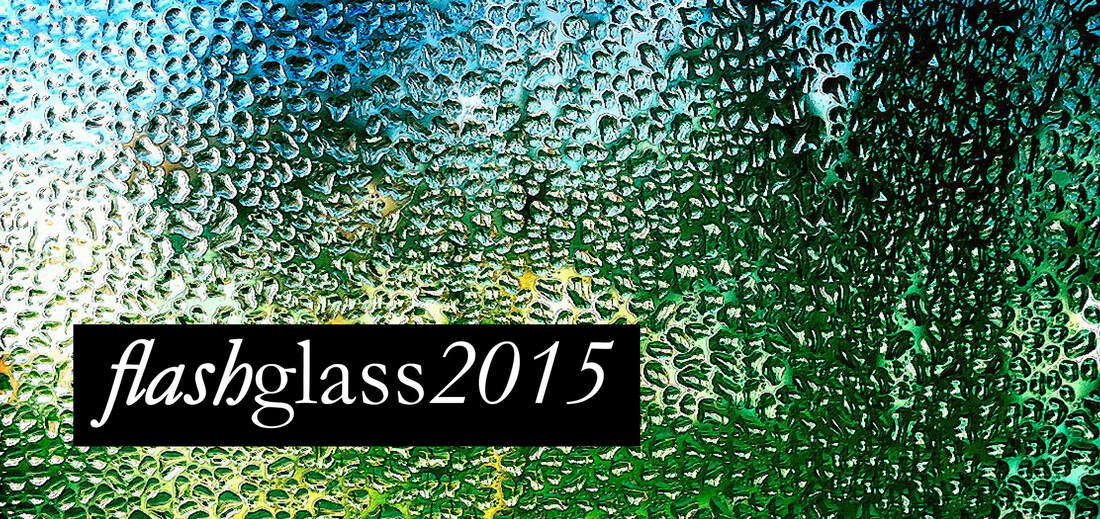

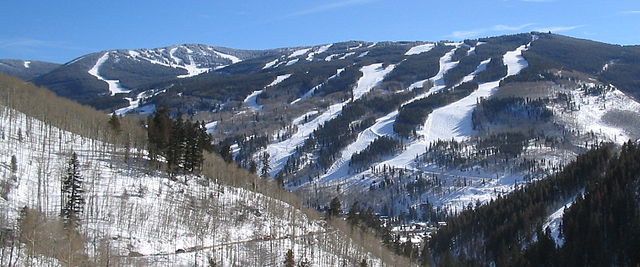
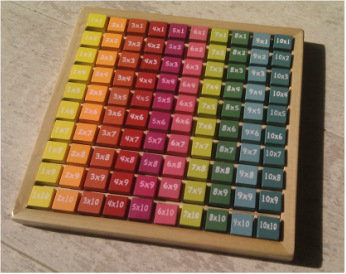

 RSS Feed
RSS Feed
